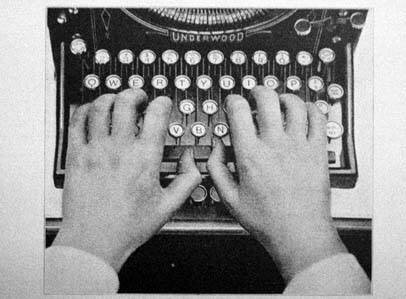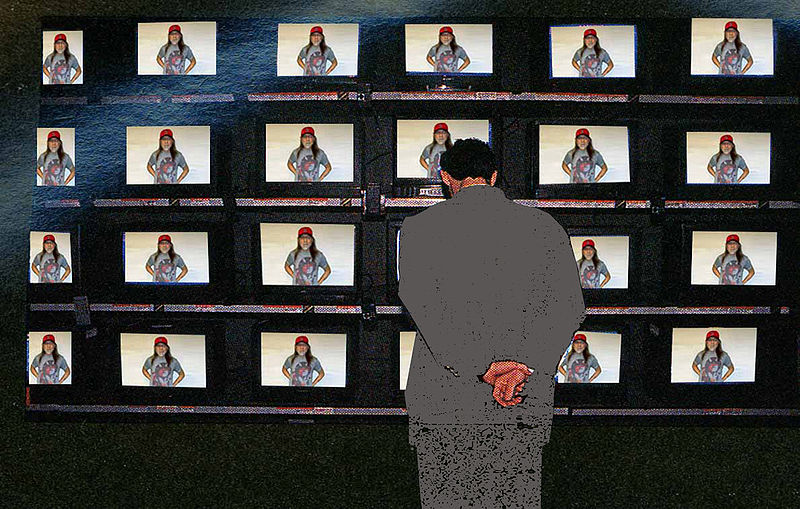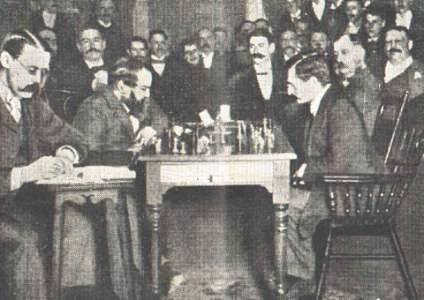
Some search-engine keyphrases bringing traffic to Afflictor this week:
You are currently browsing the monthly archive for October 2012.
- Even more proof that Donald Trump is a complete moron.
- Old Print Article: Doctor convinces people they can cure their illnesses by snapping their fingers. (1896)
- Featured Videos: Merv Griffin interviews Gene Wilder (1979) + The Urbee is a cleaner, printable auto + Computer operations at NASA during the 1960s + Randolph Hearst comments on his daughter Patty’s walkabout through the Radical Left (1970s) + Tom Snyder quizzes Gore Vidal about his many feuds (1981) + Solar-powered 3D printer in the Sahara + Water droplets dissolve transient electronics.
- Recently Posted on NYC’s Craigslist: I’m probably not going to be that difficult to hypnotize + I am so completely boring. Oh, except for my double life as a prostitute + Can you help me out with $100,000, bud? + I’m sure we’ll remain friends.
- This beer commercial seems better suited to selling cocaine.
- Philip K. Dick was mentioned in the New Yorker just once during his lifetime.
- Technologists have had trouble creating truly conscious machines.
- In 1973, the Radical Left becomes taken with a teenage guru.
- Thoughts about the first Presidential debate.
- Before Phone Phreaks, Yippies were the main phone hackers.
- Jimmy “the Greek” Snyder did PR work for Howard Hughes.
- Elon Musk fires back at Mitt Romney and other critics of Tesla Motors.
- What the end of the record business means for members of Grizzly Bear.
- Dr. Neal Bernard, son of cattle ranchers, advocates for veganism.
- When Timothy Leary was in prison, Marshall McLuhan paid him a visit.
- Steve Wozniak imagines how computers can aid education reform.
- More and more tasks will be handled by people-less vehicles.
- In a fairer world, Obamacare would be applauded by conservatives.
- 3D printers are amazing and, yes, potentially dangerous.
- Salman Khan thinks scholarly lectures should be limited to 15 minutes.
- Solar eclipses have recently spawned a healthy tourist industry.
- Technology has toppled some businesses, aided others.
- Ubiquitous screens may soon assist us without prompting.
- Foldable computing gets a little closer to reality.
- Robotic insects get a little closer to reality.
- Tiny telescopes are implanted in human eyes to aid the blind.
- Venkat Rao updates the country mouse-city mouse tale for the Digital Age.
- A brief not from 1907 about free love.
- A brief note from 1901 about gargling.
- A brief note from 1891 about an outhouse.
- Afflictor Nation: Great Britain rules in September.
- This week’s Afflictor keyphrase searches.
From the November 22, 1901 Brooklyn Daily Eagle:
“Glen Cove, Long Island–Edward Albertson died yesterday from strangulation. He was ill with tonsillitis, and was gargling his throat when he choked, and, failing to get relief, was strangled to death. He leaves a widow and six children.”
Tags: Edward Albertson
The great Gene Wilder is the star of what’s probably my third favorite film comedy, Young Frankenstein. (1. Kubrick’s Lolita, 2. Duck Soup.) Here’s Wilder in 1979 in a closed studio discussing his life and career with Merv Griffin.
Tags: Gene Wilder, Merv Grifffin
The best and brightest people I’ve met in my life haven’t been the most successful ones. America doesn’t work that way now. It probably never did, but it seems to be getting worse. What people believe to be a promise has become, at best, a lottery ticket.
I watched Carly Fiorina on TV the other day extolling Mitt Romney’s great command of facts and figures at the first Presidential debate. Like, say, his assertion that half of the clean tech companies that the President invested stimulus money in had gone belly up. Except that isn’t close to the truth. From what I can gather, more than 90% of those companies have thus far been successful. That’s an amazing rate. Far better than Romney’s record at Bain and far, far better than Fiorina’s lousy tenure at Hewlett-Packard. I’m all for inventors and creators and builders making good, but you have to question a system that so richly rewards an executive like Fiorina, who contributes little, or Romney, who doesn’t acknowledge he had a huge advantage in a very uneven playing field because of family money and connections. The disconnect between such people and most Americans is enormous.
Economist Joseph Stiglitz has been calling bullshit on the situation for some time now. From a recent Q&A with him at Spiegel:
“Spiegel:
The US has always thought of itself as a land of opportunity where people can go from rags to riches. What has become of the American dream?
Stiglitz:
This belief is still powerful, but the American dream has become a myth. The life chances of a young US citizen are more dependent on the income and education of his parents than in any other advanced industrial country for which there is data. The belief in the American dream is reinforced by anecdotes, by dramatic examples of individuals who have made it from the bottom to the top — but what matters most are an individual’s life chances. The belief in the American dream is not supported by the data.
Spiegel:
What do the numbers suggest?
Stiglitz:
There has been no improvement in well-being for the typical American family for 20 years. On the other side, the top one percent of the population gets 40 percent more in one week than the bottom fifth receive in a full year. In short, we have become a divided society. America has created a marvelous economic machine, but most of the benefits have gone to the top.”
Tags: Carly Fiorina, Joseph Stiglitz, Mitt Romney

“We are going to be living in a world with tablets or flat screen computers on the walls in our bedrooms and kitchens.” (Image by Vergel Bradford.)
Let’s hope there’s an OFF switch when we are surrounded by screens and sensors that want to assist us without any prompting. It will be wonderful and it will be terrible. From Ben Popper at the Verge:
It’s rare to meet a startup that is focused on building a business for a world which does not yet exist. But Expect Labs, which today announced a $2.4 million round of funding from Google Ventures and Greylock Partners, is doing just that. The company is creating a system that listens and understands human conversation, then suggests relevant information without being prompted. ‘As the price of hardware falls, we are going to be living in a world with tablets or flat screen computers on the walls in our bedrooms and kitchens,’ says Expect Labs founder Timothy Tuttle. ‘These machines are going to listen to everything you say and be able to assist you with the right song, map or recipe, without you even having to ask.'”
Tags: Ben Popper, Timothy Tuttle
Donald Trump is an unintelligent buffoon who inherited riches, land and connections from his father, but likes to pretend he’s a self-made man who possesses wisdom about wealth creation. Amid tweets in which he accuses President Obama of racism, incompetence, secretly being a Kenyan and receiving poor grades in college, he thought he’d throw a bouquet to the First Couple on the occasion of their wedding anniversary, as if that would make someone believe he’s anything but a contemptible sack of trash.

“We are only interested in short term commercial loans offering a high interest rate so we can expand our operation.”
I have a problem can you help me? – buds (Financial District)
In 2012 marijuana prohibition may be coming to an end. In the United States of America there are currently 17 states (plus Washington DC) who have developed legislation legalizing marijuana for medical use. There is even a court case scheduled to begin on Oct 16 (ASA VS DEA) where it is possible the US Federal Government may be forced to change the classification of marijuana from schedule I to II or III which will immediately end the seventy year war against the plant. We are seeking lenders. If you can offer $5000 to $350,000 in the form of a commercial loan we will pay that loan at a fixed interest rate of 10% to 30%. So, do you have a minute?
This is a little long but it’s imporant that you get the big picture about this new industry in America. Well, truth be told it is not really ‘new’. In fact, it was a major and highly profitable industry for a long time up until about a hundred years ago until a guy named Harry Anslinger came along.
It seems Harry didn’t like jazz and he also didn’t like immigrant workers from south of the border. So old Harry realized that people from Mexico had a little habit of smoking the wacky weed which is from the “flower” of a hemp plant. Down in New Orleans the jazz musicians were starting to partake and the big old fat man, well.. he decided the SMART thing to do would be to lock up all those people who smoked cannabis. So Harry and his friends got together and they formed the “Bureau of Prohibition” which was an office within the Federal Government from 1920 to 1930 until it was rolled into the Dept of Justice. Harry’s actual title was “Prohibition Commissioner” in the bureau. He died in 1975 and we are just now beginning to learn that his motives may have been less than honorable. At the very least we know the plant certainly does not cause the great harm he said it did and it is far less toxic than alcohol.
In Colorado we have a chance to make good money providing medical marijuana to patients who need it, but we have a big problem.
Until the Federal Government reschedules Cannabis from Schedule I to Schedule II or III there will be issues that arise regarding how to govern marijuana and exactly what individual states can and cannot do. Banks all work under the purview of the Federal Reserve and the Federal Deposit and Insurance Corp (FDIC). These entities oversee all aspects of banking and as a part of their rules they force the banks to report activities that are suspicious. Medical marijuana is suspicious at the Federal level no matter what the individual states rules are and as a result all banks REFUSE to accept accounts from medical marijuana dispensaries even when the dispensary is completely compliant with all local and state rules. In 2011 Attorney General Holder said that he could find no reason medical marijuana centers should not be able to make deposits just like any other business, but the banking industry has not yet caught up to the Department of Justice stance on state legal dispensaries. ((Search the internet for “banks refuse dispensaries” or “credit cards refuse dispensaries”))
We have an exciting opportunity in Colorado, the only place where cannabis can be sold for-profit in the world. The industry is HIGHLY profitable with gross profit margins well north of 70%. We are currently interested in borrowing $350,000 US in the short term toward a large production facility south of Denver whose build-out will run nearly $2,000,000 US over the course of the next few years.
We are not seeking partners, or investors. We are only interested in short term commercial loans offering a high interest rate so we can expand our operation. So we need good hearted citizens who are willing to step in where the banks will not. Do it because you have a loved one who is helped by medical marijuana or do it because you want to make a decent return, just do it!
If you can offer $5000 to $350,000 in the form of a commercial loan we will pay back that loan at a high fixed interest rate of 10% to 30%.
- If you lend us:$ 5000 We will pay you $ 648.66 per month for 8 months (10.0%)
- If you lend us:$ 10000 We will pay you $ 1309.30 per month for 8 months (12.5%)
- If you lend us:$ 25000 We will pay you $ 3303.33 per month for 8 months (15.0%)
- If you lend us:$ 50000 We will pay you $ 6667.08 per month for 8 months (17.5%)
- If you lend us:$100000 We will pay you $13455.57 per month for 8 months (20.0%)
or if you prefer a balloon:
- If you lend:$ 25000 We will pay you $ 521.14 per month for 8 months + $ 24,997.36 (25.0%)
- If you lend:$ 50000 We will pay you $1,146.16 per month for 8 months + $ 49,997.17 (27.5%)
- If you lend:$100000 We will pay you $2,500.34 per month for 8 months + $ 99,997.03 (30.0%)
- If you lend:$250000 We will pay you $7,291.90 per month for 8 months + $249,997.93 (35.0%)
(Usury rate in Colorado is 40%)
To be clear, this is not an offer to sell a security, this is an offer for a commercial loan which is partly secured against lights, ballasts, computer equipment, air conditioning systems, water conditioning systems, carbon dioxide emission systems, and other related equipment we need to operate and expand our production capabilities.
You will not be sharing any profits we generate as that is illegal by state law.
Loaning us money grants you no voting rights nor do you have any say in our day to day operations. This is a simple commercial equipment loan request at a fixed interest rate for a short term (9 or fewer months).Contact me at the above email if you would like to lend us money or learn more about our state legal for-profit business.
For a guy who grew up in Michigan, Mitt Romney sure hates auto manufacturers. He would have killed off Detroit, and now he uses Elon’s Musk’s Tesla Motors as a curse word. Anyone who is rooting against Tesla for political or other reasons–an American company that provides really good jobs and a cleaner future–is dead wrong. I assumed Musk would push back after last night’s debate and recent negative news stories about his electric car company. From his new release:
“Most importantly, what did not come across well was that we raised the funds simply for risk reduction. Barring any disasters internally or with suppliers, Tesla is actually on the verge of becoming cash flow positive and will not have to spend any of the money raised, at least until we embark upon a major new vehicle program. In the public call with investors, I tried to make this point, but perhaps should have emphasized it more: we expect Tesla to become cash flow positive at the end of next month.
However, given that we do have a global supply chain and that floods, fires, hurricanes or earthquakes can cause supply chain interruptions and halt production, we thought it would make sense to raise capital to protect against such an event. In fact, an important consideration in doing this financing round was that we went through just such a crisis recently with a supplier that had a flood in their factory. This caused a shortfall in shipments and delayed production until we could find another solution.
As for the reduced vehicle delivery guidance in Q3 and Q4 of this year, it is unfortunate that we are at the steepest portion of our production ramp. This gives the appearance of being much further behind than we actually are. Our production rate in the last week of September was roughly 100 vehicles, four times greater than our production in the first week of September as we overcame supply constraints. If the calendar were simply shifted a few weeks to the right, Tesla would have exceeded the 500 vehicle delivery target for the third quarter. In fact, I am pleased to report that we completed production of 359 vehicles last quarter (delivering over 250 of those to customers) and have already made our 500th vehicle body. While we are indeed a few weeks later than we would like, this is perhaps not a terrible outcome for a product as advanced and complex as the Model S, particularly given that Tesla is doing manufacturing of full vehicles for the first time with a new team and new suppliers.”
Tags: Elon Musk, Mitt Romney
I’m all for rethinking education, making learning more engaging, but I have a problem with the underlying notion in Salman Khan’s new Time think-piece which suggests hour-long lectures should be a thing of the past because students tune them out at the quarter-hour point.
I don’t think a post-literate world means one in which reading books will disappear. It’s just that they’ll be additional types of literacy. There’s room for more than one. Likewise, I don’t think a post-analog society means that we no longer have to press our brains beyond short-form critical thought that uses class time with the rigid efficiency of a computer. Sometimes the length of the lesson is as important as the lesson itself.
Life doesn’t come to us in the small bits we may desire. Some challenges require that we’ve learned patience, that we’ve forced ourselves to focus beyond what’s comfortable or convenient. If we place ourselves inside of a construct that provides us with only what we want, we won’t get everything we need. From Kahn’s essay:
“In 1996, in a journal called the National Teaching & Learning Forum, two professors from Indiana University — Joan Middendorf and Alan Kalish — described how research on human attention and retention speaks against the value of long lectures. They cited a 1976 study that detailed the ebbs and flows of students’ focus during a typical class period. Breaking the session down minute-by-minute, the study’s authors determined that students needed a three- to five-minute period of settling down, which would be followed by 10 to 18 minutes of optimal focus. Then — no matter how good the teacher or how compelling the subject matter — there would come a lapse. In the vernacular, the students would ‘lose it.’ Attention would eventually return, but in ever briefer packets, falling ‘to three- or four-minute [spurts] towards the end of a standard lecture,’ according to the report. This study focused on college students, and of course it was done before the age of texting and tweeting; presumably, the attention spans of younger people today have become even shorter, or certainly more challenged by distractions.” (Thanks Browser.)
Tags: Salman Khan
Comments from the 1970s by Randolph Hearst about his daughter Patty, who was kidnapped by the Symbionese Liberation Army and then, perhaps brainwashed, joined in the group’s acts of domestic terrorism.
Tags: Patty Hearst, Randolph Hearst
I think the Singularity won’t be the moment machines surpass human knowledge but when carbon and silicon are integrated to achieve a reality greater than would be possible by either alone. In an excellent Aeon essay, David Deutsch considers the sources of the continuing inability of technologists to create truly conscious machines, which he sees as a crisis of philosophical thought as much as anything. The opening:
“It is uncontroversial that the human brain has capabilities that are, in some respects, far superior to those of all other known objects in the cosmos. It is the only kind of object capable of understanding that the cosmos is even there, or why there are infinitely many prime numbers, or that apples fall because of the curvature of space-time, or that obeying its own inborn instincts can be morally wrong, or that it itself exists. Nor are its unique abilities confined to such cerebral matters. The cold, physical fact is that it is the only kind of object that can propel itself into space and back without harm, or predict and prevent a meteor strike on itself, or cool objects to a billionth of a degree above absolute zero, or detect others of its kind across galactic distances.
But no brain on Earth is yet close to knowing what brains do in order to achieve any of that functionality. The enterprise of achieving it artificially — the field of ‘artificial general intelligence’ or AGI — has made no progress whatever during the entire six decades of its existence.” (Thanks Kurzweil.)
Tags: David Deutsch
Technology wrecks some business models and builds some others. One category that has experienced a surprising boom: chess. From Kenneth Rogoff at Project Syndicate:
“A peculiar but perhaps instructive example comes from the world of professional chess. Back in the 1970’s and 1980’s, many feared that players would become obsolete if and when computers could play chess better than humans. Finally, in 1997, the IBM computer Deep Blue defeated world chess champion Gary Kasparov in a short match. Soon, potential chess sponsors began to balk at paying millions of dollars to host championship matches between humans. Isn’t the computer world champion, they asked?
Today, the top few players still earn a very good living, but less than at the peak. Meanwhile, in real (inflation-adjusted) terms, second-tier players earn much less money from tournaments and exhibitions than they did in the 1970’s.
Nevertheless, a curious thing has happened: far more people make a living as professional chess players today than ever before. Thanks partly to the availability of computer programs and online matches, there has been a mini-boom in chess interest among young people in many countries.
Many parents see chess as an attractive alternative to mindless video games. A few countries, such as Armenia and Moldova, have actually legislated the teaching of chess in schools. As a result, thousands of players nowadays earn surprisingly good incomes teaching chess to children, whereas in the days before Deep Blue, only a few hundred players could truly make a living as professionals.”
Tags: Kenneth Rogoff
Tags: Gore Vidal, Tom Snyder, William F. Buckley
The opening of a Venkat Rao post, in which he updates the country mouse-city mouse divide for our Digital Age:
“The fable of the town mouse and the country mouse is probably the oldest exploration of the tensions involved in urbanization, but it seems curiously dated today. The tensions explored in the fable — the simple, rustic pleasures and securities of country life versus the varied, refined pleasures and fears of town life – seem irrelevant today. In America at least, the ‘country’ such as it is, has turned into a geography occupied by industrial forces. The countryside is a sparsely populated, mechanized food-and-resource cloud. A system of national parks, and a scattering of ‘charming’ small towns and villages pickled in nostalgia, are all that liven up a landscape otherwise swallowed up by automated modernity.
In America, larger provincial towns and cities that are just a little too large and unwieldy to be nostalgically pickled, but not large enough to be grown into metropolitan regions, appear to be mostly degenerating into meth-lab economies or ossifying into enclaves of a retreating rich.
So the entire canvas of the town mouse/country mouse fable is being gradually emptied out. If there is a divide today, it is between two new species of mice: metro mice and cloud mice.”
••••••••••
Jerry Mouse leaves the sticks to visit Manhattan, 1945:
Tags: Venkat Rao
New flexible batteries and OLED (Organic Light Emitting Diode) may lead to foldable computing. From Dani Fankhauser at Mashable: “Innovation in lighting is great, but the real game-changer is when OLED is used on a flexible surface for a bendable device. ‘The first benefit will be thinner and lightweight, less breakable displays,’ say Janice Mahon, VP of Technology Commercialization at Universal Display Corporation.
She describes what industry insiders call a ‘universal communication device,’ which is essentially a pen, but with a display that rolls in and out. It seems our aspirations are towards forever smaller devices.”
Tags: Dani Fankhauser, Janice Mahon
I don’t know if a robotic insect will be perfected by 2015, but it probably won’t be long. From George Dvorsky at i09:
“Every once in a while, there’s news which reminds us that we’re living in the age of accelerating change. This is one of those times: A new project has been announced in which scientists at the Universities of Sheffield and Sussex are hoping to create the first accurate computer simulation of a honey bee brain — and then upload it into an autonomous flying robot.
This is obviously a huge win for science — but it could also save the world. The researchers hope a robotic insect could supplement or replace the shrinking population of honey bees that pollinate essential plant life.”
Tags: George Dvorsky
I am looking to be made sumissive through hypnosis (West Village)
I have been searching for a while with no success so I hope this works now. I am yearning and desiring to meet a couple, man and woman, does not matter if they are a real couple or just good friends, but just the two of them, both creative and dominant. One has to know hypnosis and how to do it. The other needs to follow along for my conditioning and to have fun I wish and yearn to be hypnotized to become submissive to them. To have to obey them, no matter what. If you are a stage hypnotist looking for more practice or just to have fun, please get together with someone of the opposite sex and toy with me, hypnotically. It’s something I have been wanting to experience for years. Please respond. Thanks.
I think from reading this blog you’re pretty familiar with my opinion of gurus. We all deserved to be caned, not worshipped. When I was looking for the phone phreak articles from Ramparts, I came across a 1973 piece from that same publication by Ken Kelly about a teenage guru named Maharaji Ji, a.k.a. “The Perfect Master,” who had become popular at the time with Rennie Davis and some other gullible members of the American counterculture. The opening:
“For an entire week, Berkeley buzzed in anticipation of the return of Rennie Davis. The incredible story of his conversion to the divine prodigy, Satguru Maharaj Ji, had been revealed in a 40-minute interview on the local FM rocker KSAN. Not only was he dedicating his entire life to Maharaj Ji, but by 1975 Mao Tse-tung himself would be bowing in homage before the teenage theomorphic guru. The reaction ranged from sympathy to Paul Krassner’s insistence that the entire enterprise was a CIA plot. In between were those who felt that Davis was bummed out by the abuse heaped on him as an active, white, male Movement heavy, disappointed by the disintegration of the anti-war movement and therefore open to the love-vibes and Telex technology which form the core of the Satguru’s appeal. Whatever the explanation, everyone was curious, and they itched to see the new Rennie Davis and hear him explain it all in the flesh.
He chose Pauley Ballroom on the U.C. campus to make his stand, a site which overlooks the famous Sproul Plaza. There, some eight years earlier, Mario Savio and his fellow students had marched to shut down the university, thereby unloosing a flood of campus protest which did not subside for five years. Rennie Davis had played a crucial role in that Movement. He had raised money, mapped strategy, given speeches, negotiated permits, written pamphlets-in short, he had done everything that the Movement had done and more. When others had grown tired and cynical, he had worked on and on, and it was only in recent months that he had begun to slacken his pace.
People had come to view Rennie Davis as better, more dedicated than the rest of us, and now, suddenly, he was telling us to surrender our hearts and minds to a barely pubescent self-proclaimed Perfect Master from India and waltz into Nirvana. It was as if Che Guevara had returned to recruit for the Campfire Girls: the anomaly was as profound as the amazement.
And so they packed the ballroom to hear Rennie Davis, and one sensed curiosity, a certain amount of hostility, and an undercurrent of fear. As he stood before the assemblage, the vultures descended. ‘Kiss my lotus ass.’ ‘All power to the Maharajah, huh?’ He took it in with smiles and good humor. ‘I’m really blissed out with a capital B,’ he proclaimed in the vernacular of his new calling. “I’m just here to make a report, and if you don’t want to check out what I’m saying, that’s cool. Sooner or later you’ll find out that we are operating under a new leadership, and it is Divine, that it’s literally going to transform the planet into what we’ve always hoped and dreamed for.'”
See also:
Tags: Ken Kelly, Maharaji Ji, Rennie Davis
I’ve of course read Ron Rosenbaum’s seminal 1971 Phone Phreak story in Esquire, but I hadn’t come across the coverage of that subculture from Ramparts until now. In 1972, that publication ran step-by-step instructions of how someone could receive phone calls for free, sans blue box. In 1993, it published a piece by Bruce Sterling about the history of hacking which explained the pre-Phreak politicized past of phone rip-offs, which was a signature of the Yippie movement. An excerpt:
“Abbie Hoffman is said to have caused the Federal Bureau of Investigation to amass the single largest investigation file ever opened on an individual American citizen. (If this is true, it is still questionable whether the FBI regarded Abbie Hoffman a serious public threat -quite possibly, his file was enormous simply because Hoffman left colorful legendry wherever he went). He was a gifted publicist, who regarded electronic media as both playground and weapon. He actively enjoyed manipulating network TV and other gullible, imagehungry media, with various weird lies, mindboggling rumors, impersonation scams, and other sinister distortions, all absolutely guaranteed to upset cops, Presidential candidates, and federal judges. Hoffman’s most famous work was a book self-reflexively known as Steal This Book, which publicized a number of methods by which young, penniless hippie agitators might live off the fat of a system supported by humorless drones. Steal This Book, whose title urged readers to damage the very means of distribution which had put it into their hands, might be described as a spiritual ancestor of a computer virus.
Hoffman, like many a later conspirator, made extensive use of pay- phones for his agitation work — in his case, generally through the use of cheap brass washers as coin-slugs.
During the Vietnam War, there was a federal surtax imposed on telephone service; Hoffman and his cohorts could, and did, argue that in systematically stealing phone service they were engaging in civil disobedience: virtuously denying tax funds to an illegal and immoral war. But this thin veil of decency was soon dropped entirely. Ripping-off the System found its own justification in deep alienation and a basic outlaw contempt for conventional bourgeois values. Ingenious, vaguely politicized varieties of rip-off, which might be described as ‘anarchy by convenience,’ became very popular in Yippie circles, and because rip-off was so useful, it was to survive the Yippie movement itself. In the early 1970s, it required fairly limited expertise and ingenuity to cheat payphones, to divert ‘free’ electricity and gas service, or to rob vending machines and parking meters for handy pocket change. It also required a conspiracy to spread this knowledge, and the gall and nerve actually to commit petty theft, but the Yippies had these qualifications in plenty. In June 1971, Abbie Hoffman and a telephone enthusiast sarcastically known as ‘Al Bell’ began publishing a newsletter called Youth International Party Line. This newsletter was dedicated to collating and spreading Yippie rip-off techniques, especially of phones, to the joy of the freewheeling underground and the insensate rage of all straight people.
As a political tactic, phone-service theft ensured that Yippie advocates would always have ready access to the long-distance telephone as a medium, despite the Yippies’ chronic lack of organization, discipline, money, or even a steady home address.
Party Line was run out of Greenwich Village for a couple of years, then ‘Al Bell’ more or less defected from the faltering ranks of Yippiedom, changing the newsletter’s name to TAP or Technical Assistance Program. After the Vietnam War ended, the steam began leaking rapidly out of American radical dissent. But by this time, ‘Bell’ and his dozen or so core contributors had the bit between their teeth, and had begun to derive tremendous gut-level satisfaction from the sensation of pure technical power.
TAP articles, once highly politicized, became pitilessly jargonized and technical, in homage or parody to the Bell System’s own technical documents, which TAP studied closely, gutted, and reproduced without permission. The TAP elite revelled in gloating possession of the specialized knowledge necessary to beat the system.
‘Al Bell’ dropped out of the game by the late 70s, and ‘Tom Edison’ took over; TAP readers (some 1400 of them, all told) now began to show more interest in telex switches and the growing phenomenon of computer systems. In 1983, ‘Tom Edison’ had his computer stolen and his house set on fire by an arsonist. This was an eventually mortal blow to TAP (though the legendary name was to be resurrected in 1990 by a young Kentuckian computeroutlaw named ‘Predat0r.’)
Ever since telephones began to make money, there have been people willing to rob and defraud phone companies. The legions of petty phone thieves vastly outnumber those ‘phone phreaks’ who ‘explore the system’ for the sake of the intellectual challenge. The New York metropolitan area (long in the vanguard of American crime) claims over 150,000 physical attacks on pay telephones every year! Studied carefully, a modern payphone reveals itself as a little fortress, carefully designed and redesigned over generations, to resist coinslugs, zaps of electricity, chunks of coin-shaped ice, prybars, magnets, lockpicks, blasting caps. Public pay- phones must survive in a world of unfriendly, greedy people, and a modern payphone is as exquisitely evolved as a cactus.”
Tags: Abbie Hoffman, Bruce Sterling, Ron Rosenbaum
Jimmy “the Greek” Snyder, the ego-driven Vegas oddsmaker who did as much to legitimize gambling in America as any, lived for decades on the edge before going over it. In addition to his casino and TV work, Snyder did public relations for Howard Hughes. From a 1974 People article:
People:
What do you do for a living?
Jimmy the Greek:
Basically, I’m a PR man. I have a firm called Jimmy the Greek’s Public Relations, Inc. We have offices in Las Vegas and Miami, 19 people on the staff, and we gross about $800,000 a year, representing companies like National Biscuit Company—the candy division—and Aurora Toys. For three-and-a-half years, I handled PR for Howard Hughes.
People:
What did you do for Hughes?
Jimmy the Greek:
Different things. Hughes was opposed to atomic testing so close to Las Vegas. Every time there was a megaton-plus test, the windows of the hotel shook, and there were already cracks in some of the buildings. He didn’t want the people he brought to Vegas hurt. Mostly, he was afraid of the radiation. Mr. Maheu, his manager, would call and say, ‘Mr. Hughes is against megaton-plus testing, Jimmy.’ And I’d say, ‘Well, what else?’ And he’d say, ‘That’s it, Jimmy.’ And you were on your own from there on. I was very happy working for him. And $175,000 a year isn’t hay.•
________________________
“We are saddened that our 12-year association with him ended this way”:
That brilliant Stewart Brand knew forty years ago that the coming connectivity of computers would eventually bring dark days to newspapers and record stores. And the virtual businesses that are replacing them aren’t adequate to support the old model. The excellent indie band Grizzly Bear is living the new normal. From Nitsuh Abebe in New York:
“For much of the late-twentieth century, you might have assumed that musicians with a top-twenty sales week and a Radio City show—say, the U2 tour in 1984, after The Unforgettable Fire—made at least as much as their dentists. Those days are long and irretrievably gone, but some of the mental habits linger. ‘People probably have an inflated idea of what we make,’ says [Edward] Droste. ‘Bands appear so much bigger than they really are now, because no one’s buying records. But they’ll go to giant shows.’ Grizzly Bear tours for the bulk of its income, like most bands; licensing a song might provide each member with ‘a nice little ‘Yay, I don’t have to pay rent for two months.’’ They don’t all have health insurance. Droste’s covered via his husband, Chad, an interior designer; they live in the same 450-square-foot Williamsburg apartment he occupied before Yellow House. When the band tours, it can afford a bus, an extra keyboard player, and sound and lighting engineers. (That U2 tour had a wardrobe manager.) After covering expenses like recording, publicity, and all the other machinery of a successful act (‘Agents, lawyers, tour managers, the merch girl, the venues take a merch cut; Ticketmaster takes their cut; the manager gets a percentage; publishers get a percentage’), Grizzly Bear’s members bring home … well, they’d rather not get into it. ‘I just think it’s inappropriate,’ says Droste. ‘Obviously we’re surviving. Some of us have health insurance, some of us don’t, we basically all live in the same places, no one’s renting private jets. Come to your own conclusions.'”
••••••••••
“It’s a fear, it is near”:
Tags: Edward Droste, Grizzly Bear, Nitsuh Abebe, Stewart Brand
Markus Kayser’s solar printer turns desert sand into glass. From Engadget: “Solar Sinter uses the sun’s rays in place of a laser and sand in place of resin, in a process that is perhaps more visually stunning than the results.”
Tags: Markus Kayser


























